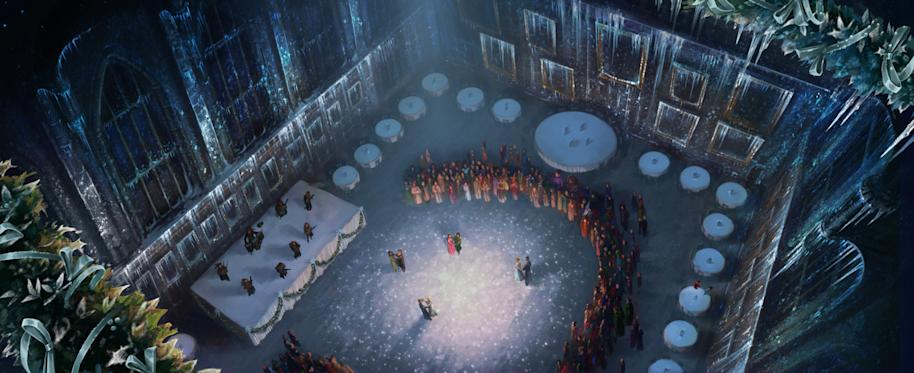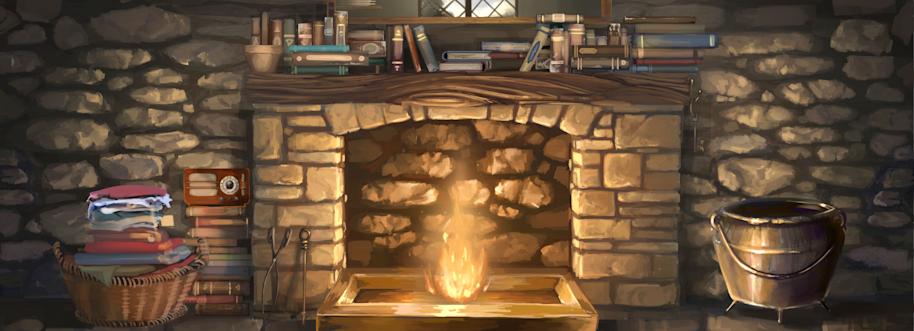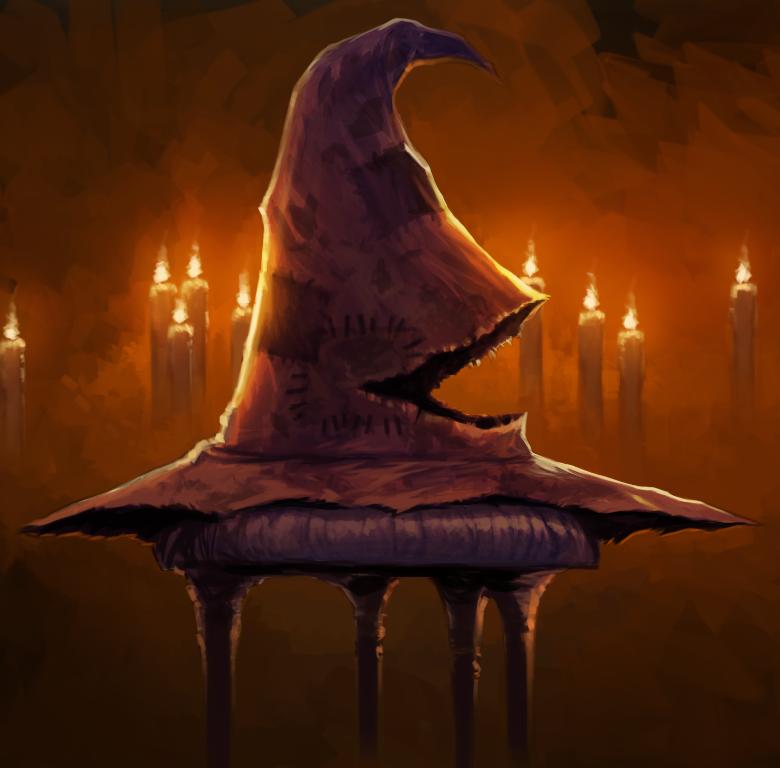‘Ah, music,’ he said, wiping his eyes. ‘A magic beyond all we do here!’
Harry Potter and the Philosopher’s Stone
Thus spoke Albus Dumbledore, a guy who knew a thing or two about magic. And he was right; for all the nifty advantages wizarding folk enjoy over Muggles – flying cars, teleportation, time travel – both enjoy a strikingly similar relationship with music.
Wizards have fandoms too
For Muggles and wizards and witches alike, a simple melody can evoke stirring passions, unite disparate factions, or inspire hopeless love far more effectively than any potion.
Take the Weird Sisters. Excitement ran high among the student body when the band were booked to play the Yule Ball at Hogwarts. As they took to the stage and the lights went down, the dancefloor filled up with clinching young partners, a scene familiar to any Muggle who’s ever been to a rock gig attended by hormonal teens. Like almost every successful Muggle group you can think of, The Weird Sisters’ appeal goes further than catchy songs. It’s about the intersection of music, sexuality and fashion; consider their ‘artfully torn’ robes, the poster on Ginny Weasley’s wall, or faces on Nymphadora Tonks’s shirt. Wizards still need merchandising.

In fact, the way wizards connect with pop music is very similar, if a little less complex, than the way we Muggles do. While Muggles have streaming services nowadays, wizards use the Wizarding Wireless Network, their place to embrace wider culture just as we Muggles do. There’s still celebrity journalism and culture as well.
Look at the Weird Sisters’ bass player’s wedding warranting a front-page story in the Daily Prophet for example. Music and bands become part of one’s identity – either the listener identifies as a fan and so becomes part of a wider movement, or they define themselves against the band, the suggestion being they have better, more refined tastes (when maybe, perhaps, they’re just a bit of a snob). And this is definitely still prevalent in Harry Potter’s world.
Emotional connections
As such, music and musicians play a crucial role in the formation of character and the building of memories. It’s fair to say Molly Weasley was bewitched by the strains of Celestina Warbeck (the so-called ‘singing sorceress’) whenever records such as You Charmed the Heart Right Out of Me or A Cauldron Full of Hot, Strong Love came on the wireless.
Molly fondly recalled dancing with her husband Arthur at age 18 to the latter tune – so really, who needs love potions? Plus, the saucy lyrics (‘Oh come and stir my cauldron / And if you do it right / I’ll boil you up some hot strong love / To keep you warm tonight’) show that Molly knows how to have a good time.

Wizarding music traditions
Beyond the world of pop stars, music is as much part of the everyday fabric of wizarding life as it is for Muggles. Even the deceased denizens of Nearly Headless Nick’s party enjoyed waltzing to an ensemble of musical saws.
Singing has a huge role to play in uniting large groups. This can manifest in all sorts of positive ways – for instance, a stirring group rendition of ‘Hoggy Warty Hogwarts’ gets students fired up for the new academic year. However, it can also be extremely negative; think of poor Ron trying his best to block the Quaffle as legions of Slytherin spectators goaded him with a mocking chorus of ‘Weasley is our King’. Who needs spells when you can take your rival down through the simple medium of song?

Even delivered solo, a cruelly-worded ditty can cut deep. When Peeves mocked Harry Potter in plain words for being the suspected heir of Slytherin, the young wizard was able to brush it off… until the poltergeist started singing: ‘Most think he’s barking, the potty wee lad / But some are more kindly and think he’s just sad / But Peevesy knows better and says that he’s mad.’ At which point, quite understandably, Harry cracked.
Perhaps it was the rhyming. One of the most ‘magical’ dimensions of song lies in lyrics. Somehow, married to a good tune, a tight sequence of rhyming couplets lends power and authority to a message where dry prose often fails. Just ask Shakespeare. The wise old Sorting Hat understood this very well, and was able to communicate the different qualities of each House at Hogwarts so much more succinctly through song than would have been possible in a stolid conventional address:
By Gryffindor, the bravest were
Prized far beyond the rest;For Ravenclaw, the cleverest
Would always be the best;For Hufflepuff, hard workers were
Most worthy of admission;And power-hungry Slytherin
Loved those of great ambition.
Harry Potter and the Philosopher’s Stone

For all of this, however, perhaps the most arresting example of the indefinable magic of music is Fluffy the giant dog. As fearsome a guardian as he was, the plaintive, unaccompanied lilt of a sole musical instrument was all that was required to put his three snarling heads to sleep. Muggles, and wizarding folk, thus agree on one universal truth: music hath powers to soothe the savage beast.



